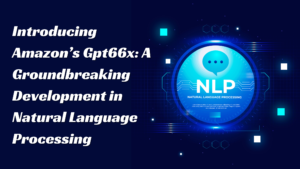Becoming an AI Developer: A Roadmap for Beginners
- 1 Essential Foundations
- 2 Core AI Development Skills
- 3 Practical Application
- 4 Networking and Continuous Learning
- 4.1 Network within the AI Community
- 4.2 Continuous Learning
- 4.3 Diverse Job Positions in AI and ML
- 4.4 Salaries in the Indian AI Landscape
- 4.4.1 Salary Range
- 4.4.2 Average Salaries
- 4.5 Job Roles and Salaries
- 4.6 Location Impact
- 4.7 Future Growth
- 5 What is AI Certification?
- 6 Importance of AI Certification
- 7 Conclusion
Artificial Intelligence (AI) is a rapidly expanding field reshaping our lives and professional landscape. Aspiring AI developers are crucial in crafting and implementing intelligent systems capable of decision-making, learning from data, and executing tasks traditionally requiring human intelligence. This guide provides an in-depth roadmap for individuals aspiring to become AI developers, focusing on the Indian context.
Essential Foundations
Grasp the Basics
Begin your journey by mastering fundamental computer science concepts, including algorithms, data structures, and programming fundamentals. This forms the bedrock for advanced AI development.
Embrace Mathematics
Develop a strong foundation in essential mathematical principles such as linear algebra, calculus, and probability. Proficiency in these areas is vital for understanding the mathematical underpinnings of machine learning.
Learn Programming Languages
Acquire expertise in programming languages, particularly Python—the predominant language in AI development. Familiarity with languages like R, Java, and C++ is beneficial for a well-rounded skill set.
Core AI Development Skills
Understand Machine Learning
Explore machine learning basics, including supervised and unsupervised learning, decision trees, and neural networks. This knowledge is fundamental for AI developers.
Explore Deep Learning
Expand your skills in deep learning, encompassing convolutional neural networks, recurrent neural networks, and generative models. Deep learning is pivotal for advanced AI applications.
Master Tools & Frameworks
Familiarize yourself with popular machine learning libraries like TensorFlow, Keras, and PyTorch. Additionally, I learn other AI development tools, such as Jupyter Notebook and GitHub, for efficient workflow and collaboration.
Practical Application
Engage in Practical Projects
Participate in coding competitions, contribute to projects, and join hackathons to apply and refine your skills. Practical experience is invaluable in the journey to becoming a proficient AI developer.
Specialize in a Domain
Choose a specific AI field to specialize in, such as computer vision, natural language processing, or robotics. Specialization enhances your expertise and opens doors to niche opportunities.
Portfolio Development
Create an impressive portfolio showcasing your skills and completed projects. Platforms like GitHub or LinkedIn allow potential employers or clients to gauge your capabilities as an AI developer.
Networking and Continuous Learning
Network within the AI Community
Attend AI conferences, meetups, and events to connect with fellow professionals and stay abreast of the latest industry developments. Networking is crucial for visiting informed and accessing potential opportunities.
Continuous Learning
Given the dynamic nature of AI, commitment to continuous learning is paramount. Stay updated on the latest research, tools, and techniques through articles, blogs, books, and participation in online communities and forums.
Diverse Job Positions in AI and ML
Data Scientist: Utilize statistical and machine learning methods to extract insights and build predictive models from data.
Machine Learning Engineer: Designed, developed, and deployed machine learning models in production environments.
AI Engineer: Design and implement AI systems, including natural language processing, computer vision, and autonomous robots.
Research Scientist: Research specific AI and ML domains, such as natural language processing, computer vision, or reinforcement learning.
Business Intelligence Analyst: Apply AI and ML techniques to analyze complex data, providing actionable insights to business leaders.
Data Engineer: Designed, built, and maintained the infrastructure for efficient data processing and modelling.
NLP Engineer: Build natural language processing systems, including chatbots, text summarization, sentiment analysis, and language translation.
Computer Vision Engineer: Develop systems for processing and interpreting visual information, such as image and facial recognition.
Robotics Engineer: Design and build intelligent systems, like robots and drones, capable of navigation and interaction with their environment.
Salaries in the Indian AI Landscape
Salary Range
AI and ML professionals in India experience a wide salary range influenced by factors like location, experience, education, and job role. In general, these professionals are among the highest-paid in the tech industry.
Average Salaries
According to industry surveys, the average annual salary for AI professionals in India is around ₹10-15 lakhs, with some positions offering higher remuneration.
Job Roles and Salaries
- Machine Learning Engineer: An average salary of ₹12-18 lakhs.
- Data Scientist: Averaging around ₹10-16 lakhs, with senior roles reaching ₹18-25 lakhs.
- AI Engineer: Salaries ranging from ₹12-20 lakhs.
- NLP Engineer and Computer Vision Engineer: Typically earning ₹10-18 lakhs.
- Robotics Engineer: Salaries varying between ₹12-22 lakhs.
Location Impact
Salaries can fluctuate based on location, with cities like Bangalore, Hyderabad, and Pune being prominent hubs for AI professionals in India.
Future Growth
The demand for AI and ML professionals in India is rising, and the industry is expected to witness continued growth. This surge in demand is likely to lead to increased salaries in the future.
What is AI Certification?
AI certifications are specialized courses that validate an individual’s proficiency in designing, implementing, and deploying intelligent systems. These certifications prove expertise in critical areas like machine learning, deep learning and specialized domains like natural language processing and computer vision. As the demand for skilled AI developers continues to surge, having an AI developer certification enhances one’s credibility and opens doors to diverse job opportunities and competitive salaries. The certification process often involves rigorous AI certification exams, ensuring that individuals possess a comprehensive understanding of the intricacies of AI development.
Importance of AI Certification
Obtaining an AI certification holds multifaceted significance in the competitive landscape of AI and machine learning (ML). Firstly, it is a testament to an individual’s commitment to continuous learning and staying abreast of industry advancements. In a rapidly evolving field like AI, where technologies and methodologies swiftly progress, certified professionals demonstrate their dedication to staying relevant. Employers in established companies or startups increasingly value AI expert certifications when assessing potential candidates. These certifications provide a standardized measure of an individual’s skills, streamlining the hiring process and helping companies identify top-tier talent efficiently.
Moreover, specific certifications, such as those focused on AI chatbots, contribute to the growing importance of AI in enhancing user experiences. Certified chatbot experts possess the skills to design and implement intelligent chatbot systems, a crucial aspect of AI development in areas like natural language processing. Chatbot certification becomes a valuable asset as AI chatbots become integral to businesses for customer interactions and support.
AI developer certification is not merely a credential but signifies a commitment to excellence, a demonstration of skills, and a key to unlocking diverse career paths. Whether specializing in computer vision, natural language processing, or robotics, holding an AI certification is a strategic move towards establishing oneself as a proficient and renowned AI professional in the evolving landscape of technology.
Conclusion
Becoming an AI developer involves a systematic approach, combining foundational learning, practical application, specialization, networking, and continuous skill enhancement. The diverse job opportunities and competitive salaries make AI development an attractive career choice in the ever-evolving tech landscape.
For individuals seeking to explore various AI prompt engineer certifications and courses, the Blockchain Council stands out as a reliable platform. Blockchain Council comprises subject experts and enthusiasts dedicated to evangelizing Blockchain research and development, use cases, and knowledge for a better world. The AI prompt engineer certification provided by the Blockchain Council is a testament to an individual’s proficiency in AI, adding significant value to their skill set and enhancing their prospects in the dynamic landscape of technology. As industries increasingly embrace emerging technologies like Blockchain and AI, the Blockchain Council serves as a beacon for professionals keen on staying ahead in this transformative era.

















